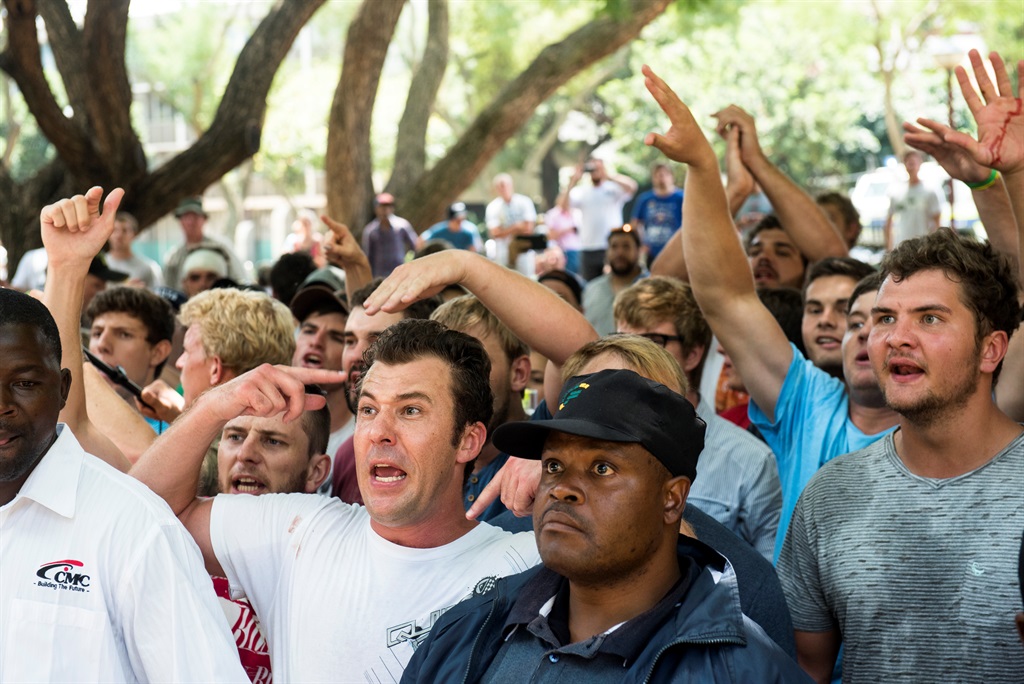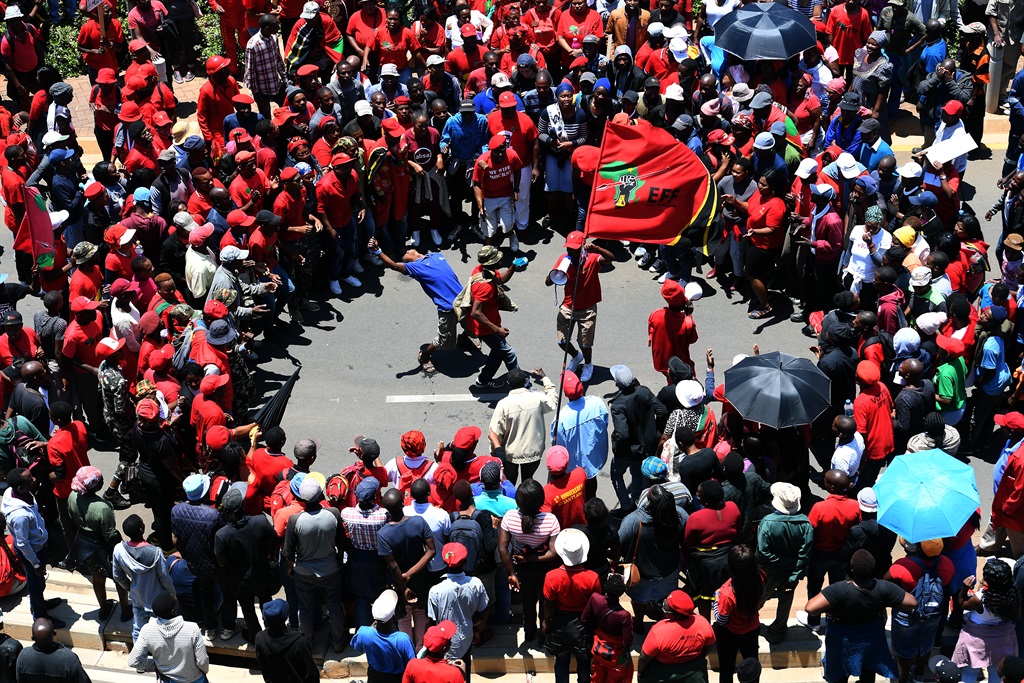Poor leadership anywhere and at any level has never been good for anyone.
It is worse when even in the face of objective facts demonstrating poor leadership, nothing is done about it especially timeously.
When Chris Hani was assassinated, just on the verge of what we later termed a democratic breakthrough, it took a woman of Afrikaner descent and a man who spent almost 27 years on Robben Island to calm a potential devastating storm of violence and possible anarchy which may have followed.
On the face of it it may have seemed a bit trivial but that turned out to be a moment in our history that could have either aggravated our already seriously divided and polarised society emerging from years of the brutality of apartheid bigotry.
The massacres that happened just immediately after the unbanning of the various political parties and the release of various political prisoners, the return of exiles and the realignment of the political spectrum presented complexities that only sound leadership could manage.
Whether rightly or wrongly, we were later to be described as a miracle nation.
Some held the view that this “miracle nation” was simply a ploy to suppress a majority to avoid it laying claim to what it fought for over years of colonial and apartheid oppression and subjugation.
Others would look at it from the point of view of a necessary evil to take us out of the trap of past conflict and towards building a cohesive united nation.
Despite the overwhelming pressure of the effects of colonial and apartheid rule over the majority, the pressing demands for real change in the fortunes of those previously on the receiving end of past privilege and abuse, a strong sense of patience and tolerance existed.
One would be forgiven for wishing that we had started where we are today and systematically improved to where we were almost 25 years ago.
Patience and tolerance at the dawn of our democracy was a collective societal and national effort institutionalised in our daily lives.
Even those who sought to exploit fears and concerns – some legitimate – of both the majority and minority alike were unable to penetrate this membrane which provided cover for patience and tolerance and brought about unity and stability.
There was never a stage when we pretended that the realities of the past did not exist but appreciated the need for a sound process to address them.
At the dawn of our democracy, we inherited a country run on the basis of gross dishonesty, cruelty, corruption at all levels of government and, worst of all, a grossly immoral leadership.
It was this grossly immoral leadership which, knowing that they were finally defeated, did all sorts of things to make it impossible for the transition to a future so many suffered and aspired for to happen.
To a very great extent they succeeded, but their success was limited to delaying the inevitable and deferring the realisation of the hopes and aspirations of the majority who wanted a better country and a united nation.
Interestingly, organisations that advocated for what may be called self-interest of sorts – which sought to advance a specific group or class interest – did not resonate with the views of the majority at the time.
This was demonstrated by the outcomes of the successive elections.
The majority of citizens and voters appeared to have preferred a more inclusive approach and opted for parties that represented a stronger element of advancing what may have seemed a national interest approach.
Those organisations, regardless of the national group they proclaimed to represent, hardly managed to make any impact at all.
Interestingly, Afrikaner right-wing organisations that emerged or which were in existence at the time and sought to exploit the fears of the white national group based on their concept of self-determination hardly received any support, never mind a significant one.
It was the liberal parties representing the white national group that managed to gain some significant support among the white national group.
Despite what appeared a clear acceptance of what appeared a national approach, parties that gained sufficient votes to make it to Parliament received votes based on national group profiles.
In a sense, it was like an attempt to balance national group fears with the need to have representation, without this being spelt out.
As we grew older as a nation and our transformation project of our nation started to slow down, most likely without us realising that we were gradually losing the impetus of change, simmering tensions started to build up.
It was always inevitable that at some point, one way or the other some stock taking would happen and that pertinent questions would be asked.
It was also inevitable that at a point we would be in trial-and-error mode and that some of the interventions we thought would steer our national agenda to its desired outcomes would prove to be wholly inadequate.
Those who were victims of past injustice were not going to be patient forever as they continued to feel the ongoing wrath of past injustice.
At the same time, it appears that those who enjoyed past privilege developed ideas of how those who suffered past injustice were to benefit.
While the political power balance had somehow tilted, the socioeconomic power balance tilted in the opposite direction.
In the fullness of time, the bubble was bound to burst. Sporadic service delivery protests were often seen as a precursor to a wholesale rebellion of sorts.
Even as they express their frustration and anger, the worst that ever happens is the limited destruction of public property.
We have yet to experience a sustained rebellion that even the law enforcement agencies cannot put under control.
But there is different type of rebellion emerging. It is not premised on violence but the regrouping based on national groups and sectarian interest.
More organisations have since emerged based purely on advancing the interests of particular national groups.
Right or wrong, these formations are gaining ground and seem to resonate with their target constituents.
Central to all of them is either a sense of being excluded and/or a desire to gain an advantage on specific issues.
AfriForum represents this type in respect of Afrikaners.
Its pretence that it will advance the cause of everyone is simply calculated to legitimise its otherwise clear agenda to advance the interests of Afrikaners.
The Black First Land First, a direct equivalent of AfriForum, unpretentiously has its target constituency as the African national group.
By default, the EFF finds itself speaking more for a youthful African national group. It is by default because of its predominantly youthful leadership with tons of energy to spare.
It has a captive audience of those who have run out of patience in the face of what appears a complete halt to the national transformation project.
Its selection of causes to champion often coincide with what a sizeable portion of the population seem to want to hear.
The most interesting part in this equation is that all these formations have adopted no ordinary strategies to advance their respective causes.
The multiplicity of their strategies even as some threaten to use force and violence point to a rather complex approach to achieving their objectives with a rebellion as probably just an empty threat rather than a design to bring the change they desire.
It is interesting that when the situation was enabling for communities to define themselves according to past apartheid classifications like homeland tribal and apartheid race classifications, they did not.
What is clear is that classifications are becoming a new character of emerging movements as we jostle for power, whether political, social or economic.
Regrettably, at the heart of our challenge and what appears to have added impetus to the erosion of the patience and tolerance which characterised our nation was the onset of the poor leadership of our immediate past leadership.
Not only has this immediate past leadership almost collapsed this country, institutionalised corruption, aggravate existing tensions but patently destroyed the hopes and aspirations of those who have been waiting in the queue for the past 24 years.
It is this immediate past leadership that has now reversed some of critical gains we already made.
It has created the type of toxicity which has given justification and impetus even to those with an evil agenda to revive the past we almost defeated.
• Modidima Mannya is an advocate and a former public servant




 Publications
Publications
 Partners
Partners












